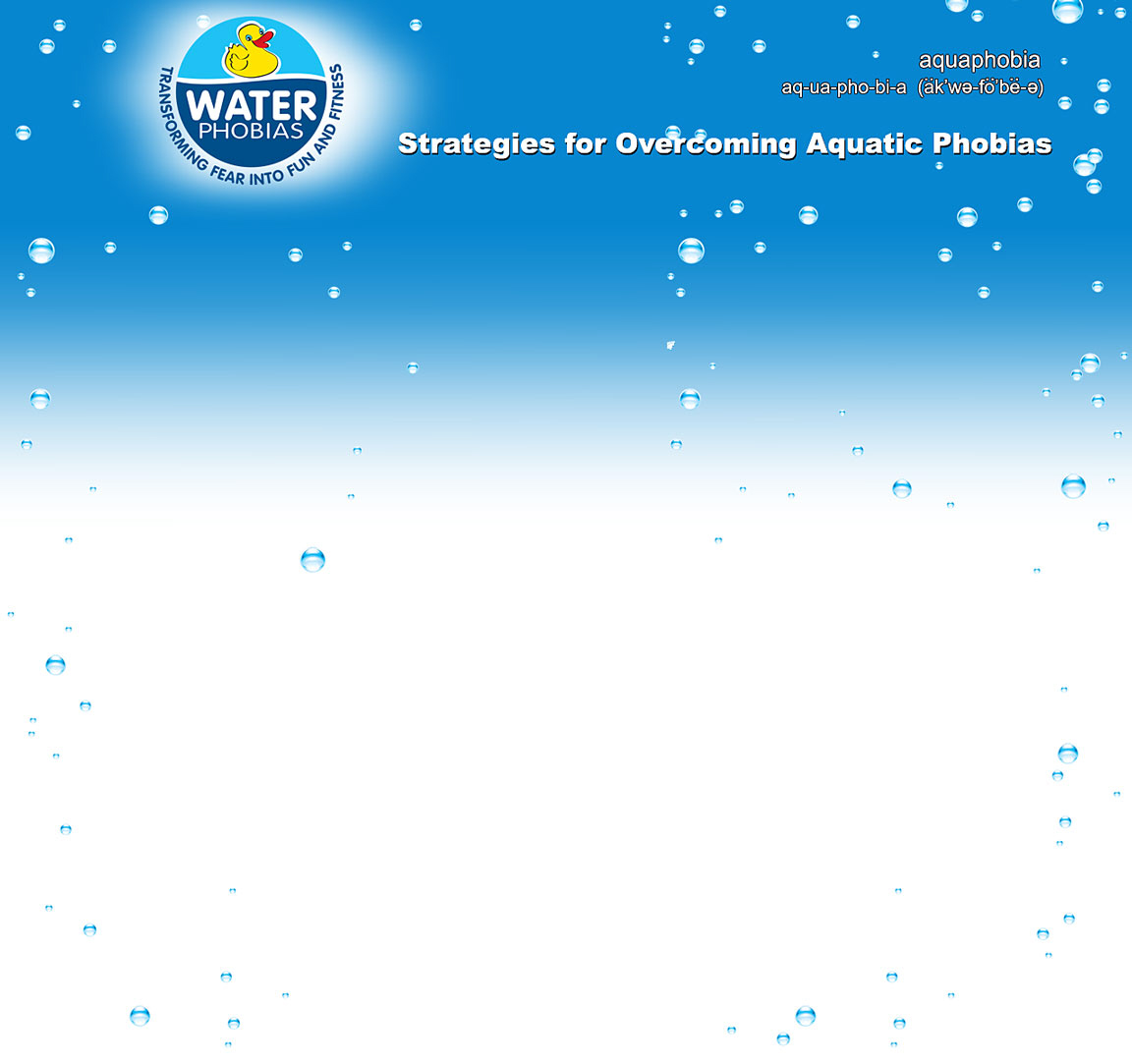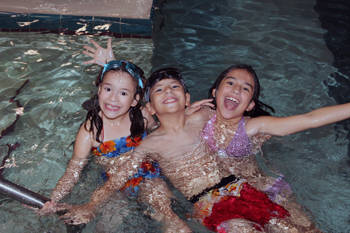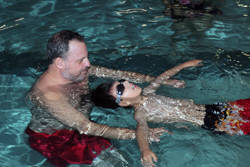
click here to read it.



The one significant difference between helping young aqua phobics, as opposed to the adults, is that the group format does not work well with children. Efforts to help this population are much more successful in a one-on-one format. When helping adults, the support of other peers who suffer from aqua phobia is very therapeutic and is an important resource. When children who suffer from aqua phobia are surrounded by their peers who share this
The single most important element in a child aqua phobic's progress in the water and ultimately, feeling better about themselves, is the relationship that they establish with the SOAP Instructor. Unfortunately, most traditional swim programs do not offer the necessary resources that are required to help this unique population of children. Building trust between a child and their instructor is, without question, the highest priority of a SOAP Instructor. The patience, emotional support, and therapeutic environment that are provided by the SOAP Instructor are much more important than the stroke development during this process. Knowledge of aqua phobia and the rapport that is developed and nurtured between the instructor and the child are more significant during this process than the availability of kickboards, flippers, goggles and a list of American Red Cross certifications.
The SOAP Program offers your child the specific resources needed to help them overcome their fear of water. One final comment or food for thought: It is not uncommon for aqua phobia to be passed along from one generation to the

"We had tried to enroll our son, beginning at age five, in swimming lessons at the local YMCA and in camp, but he would beg us to let him stop, claiming that it was boring and he just did not like it. We then read about the SOAP Program and decided to give it a try. Both my wife and I suffer from a fear of water and did not want to pass this problem along to our son. We enrolled him and what happened was truly miraculous. He not only overcame the fear and actually learned how to swim, but because he demonstrated such courage and progress, both my wife and I decided to enroll in SOAP"
Manny & Mary Ellen Garcia, Harrison, NY
Hi Jeff,
You're so encouraging and trustworthy that your students can only excel. Thank you for bringing this vital skill to so many of us, and for doing so with such patience and competence.
Hazel Seivwright
Brooklyn, NY
Helping people overcome their aquatics anxieties, fears and phobias for over 30 years.
(727) 741-3088